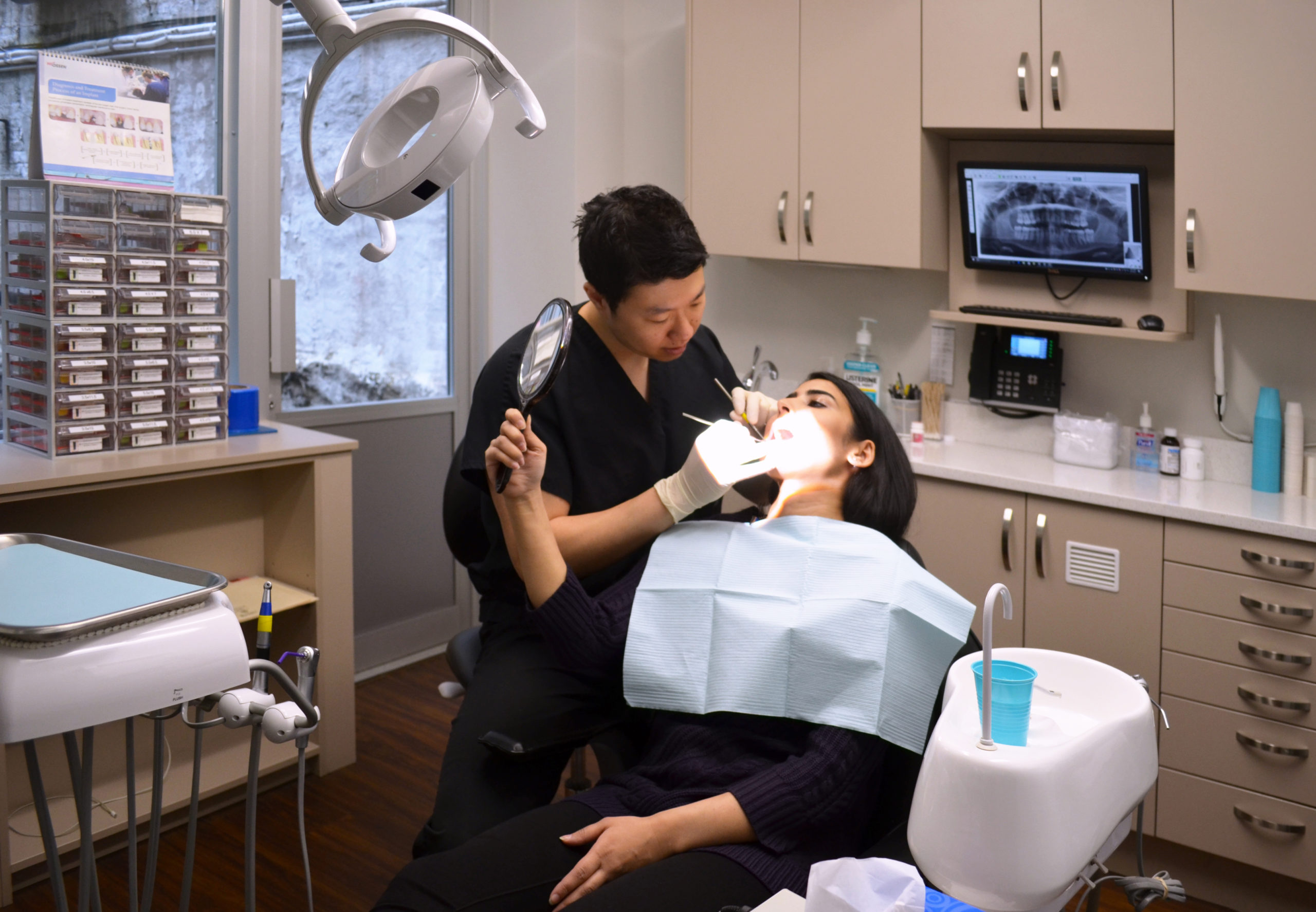Enhance Your Oral Wellness Trip With Dental Implants: Whatever You Need to Know Prior To Choosing
In the world of modern dentistry, dental implants have emerged as a groundbreaking solution for people seeking to restore their oral health and wellness and recover their smile. The decision to begin on a trip towards dental implants involves careful factor to consider of different elements that can significantly affect one's overall well-being. From recognizing the benefits and kinds of dental implants to browsing via the complex procedure and post-surgery recovery, each element plays a critical duty in the success of this transformative procedure. Nonetheless, before taking the following action, it is important to dive much deeper right into the ins and outs of dental implants to make an enlightened decision that aligns with your dental health and wellness objectives.
Advantages of Dental Implants
Dental implants provide a multitude of benefits for people looking for a lasting solution to missing out on teeth. Compared to standard dentures or bridges, dental implants provide an even more secure and irreversible choice for tooth replacement. One substantial benefit is the conservation of bone framework in the jaw. When a tooth is shed, the surrounding bone can deteriorate over time, bring about a sunken facial look. Dental implants serve as fabricated tooth origins, promoting the jawbone and avoiding bone loss.
Moreover, oral implants function and seem like all-natural teeth, permitting boosted speech and eating ability. Unlike removable dentures, implants are strongly secured in the jaw, eliminating any type of worries regarding sliding or discomfort while speaking or consuming. This stability likewise adds to enhanced confidence and self-worth for people with missing teeth, as they can communicate and grin without stressing about their oral repair shifting.
Kinds Of Dental Implants

Endosteal implants are the most common type and involve surgically putting implants straight right into the jawbone. These implants are generally made from titanium and offer a strong structure for fabricated teeth. Subperiosteal implants are put on top of the jawbone but below the periodontal cells. When the individual does not have sufficient healthy and balanced jawbone for standard implants., they are utilized.
Zygomatic implants are a less common type that are longer than standard implants and anchor right into the cheekbone instead than the jawbone. These implants are used when there is inadequate jawbone for endosteal implants. Recognizing the various types of oral implants is essential for both people and oral professionals to determine the most suitable option based upon individual requirements and scenarios.
Dental Implant Treatment Review
An extensive introduction of the procedure for oral implants elucidates the intricate actions associated with attaining successful tooth substitute - dental implants endeavour hills. The procedure begins with a comprehensive examination and consultation to evaluate the individual's oral health and identify the suitability for dental implants. Following this, the dental practitioner will surgically put the implant into the jawbone, where it will function as a strong structure for the fabricated tooth
After the dental implant is positioned, a recovery period of numerous months is typically needed to allow for osseointegration, during which the dental implant integrates with the surrounding bone cells. An abutment is connected to the dental implant to connect the synthetic tooth as soon as the dental implant has actually integrated effectively. Lastly, a tailor-made crown is fastened to the joint, completing the restoration procedure.
Throughout the treatment, patients can expect precise care and advice from their dental group to make sure ideal results. By understanding the different stages involved in dental implant placement, individuals can make enlightened decisions concerning this durable and effective tooth replacement option.
Recuperation Refine After Dental Implant Surgical Treatment
Upon completion of the oral implant treatment, the recovery procedure adhering to surgical procedure plays a critical function in guaranteeing successful integration and healing of the dental implant. The immediate post-operative period is important for the development of blood clots and the first stages of cells healing. Patients may experience some pain, swelling, and wounding in the days adhering to surgical treatment, which can usually be managed with prescribed discomfort medicines and cold compresses.
During the recuperation phase, it is essential to adhere to all post-operative care directions given by your dental expert or oral cosmetic surgeon diligently. It is recommended to stick to a soft-food diet regimen at first to prevent placing excessive stress on the implant site.
Routine check these guys out follow-up consultations will certainly be scheduled to monitor the progress of the recovery process and guarantee that the implant is incorporating well with the surrounding tissues. By following these recovery standards, people can boost the success rate of their oral implant treatment and lead the way for a healthy and balanced, lasting tooth replacement service.
Maintenance and Long-Term Care
Ensuring correct upkeep and long-term care is crucial for the durability and success of dental implants. After the first healing period complying with the dental implant surgical treatment, keeping good oral health practices is crucial to stop complications such as peri-implantitis, a problem comparable to gum illness that can bring about implant failure. Normal cleaning with a soft-bristled toothbrush, flossing, and utilizing an read this post here antibacterial mouthwash are essential parts of oral treatment for dental implants.
In addition, routine oral examinations and cleansings are important to check the health of the implants and bordering tissues. Your dental professional will certainly examine the security of the implants, check site link for any type of indications of swelling or infection, and guarantee that the prosthetic teeth are working properly. X-rays may additionally be taken periodically to assess the bone framework and the stability of the implants.
It is very important to prevent behaviors that can endanger the implants, such as smoking cigarettes or chewing difficult things - dental implants endeavour hills. By adhering to these maintenance guidelines and seeking regular specialist treatment, you can aid ensure the durability and success of your oral implants
Final Thought

Zygomatic implants are a much less common kind that are longer than traditional implants and anchor right into the cheekbone instead than the jawbone.After the implant is placed, a healing duration of a number of months is typically needed to allow for osseointegration, during which the dental implant integrates with the bordering bone tissue. Once the implant has actually incorporated efficiently, a joint is attached to the dental implant to attach the fabricated tooth.Upon conclusion of the dental implant procedure, the recuperation procedure adhering to surgical procedure plays an essential function in making sure successful combination and recovery of the implant. After the preliminary recovery duration complying with the dental implant surgical procedure, keeping great oral health practices is essential to avoid issues such as peri-implantitis, a problem comparable to gum tissue condition that can lead to implant failure.